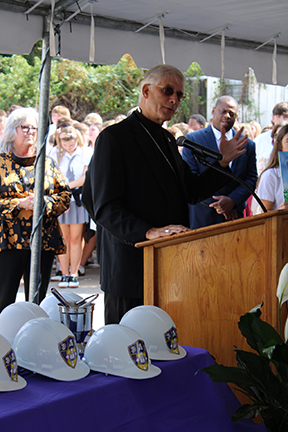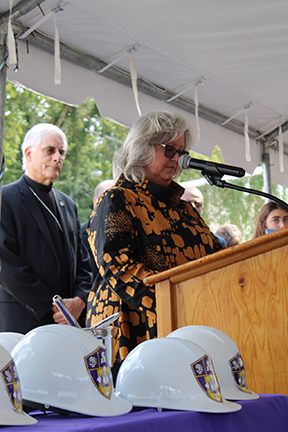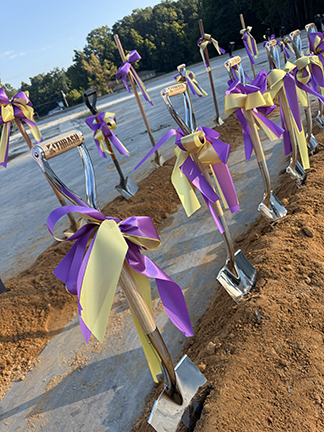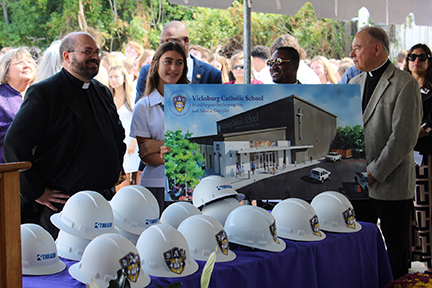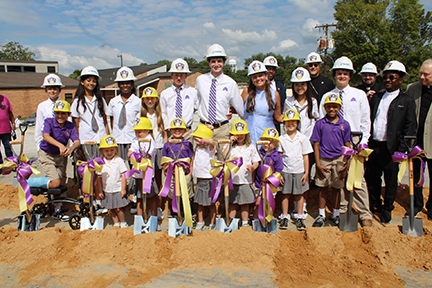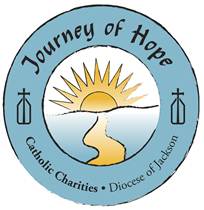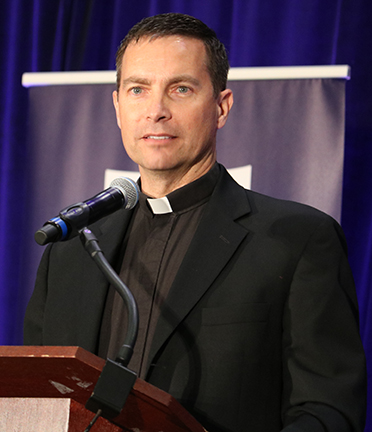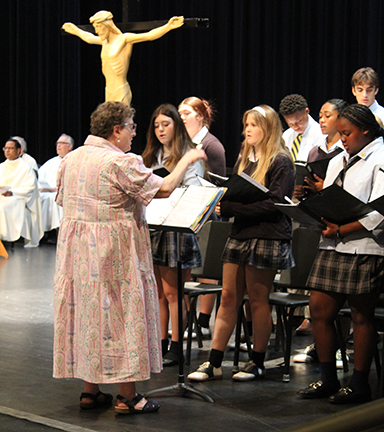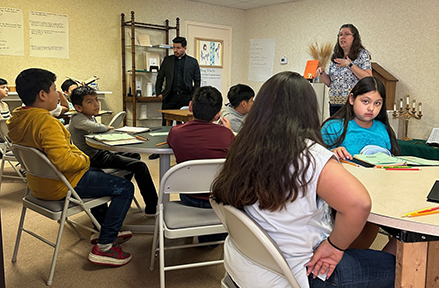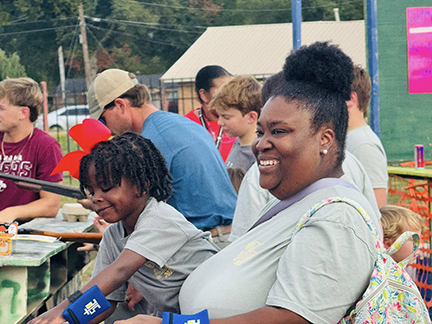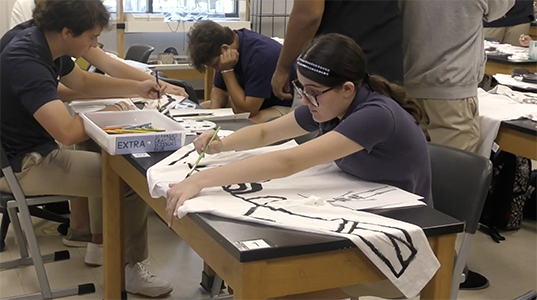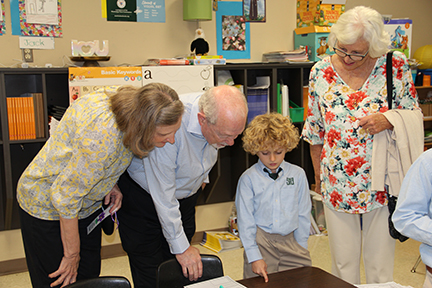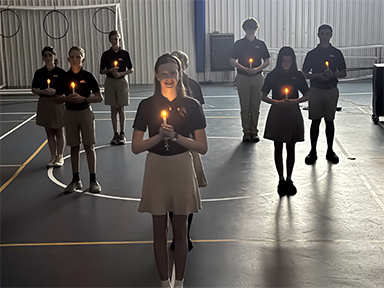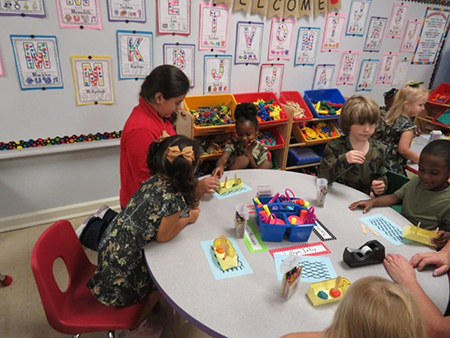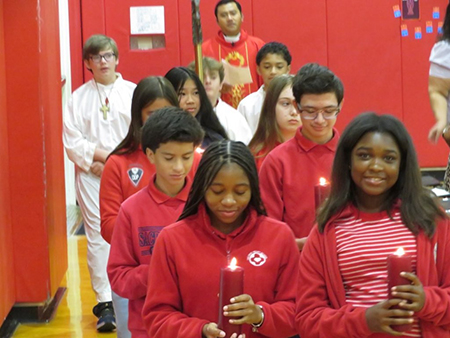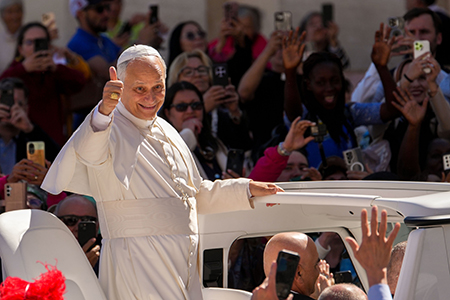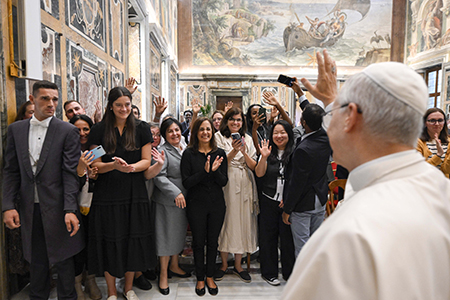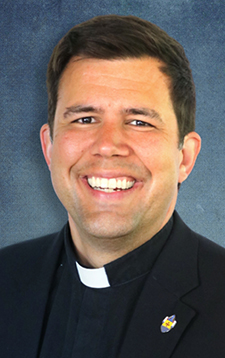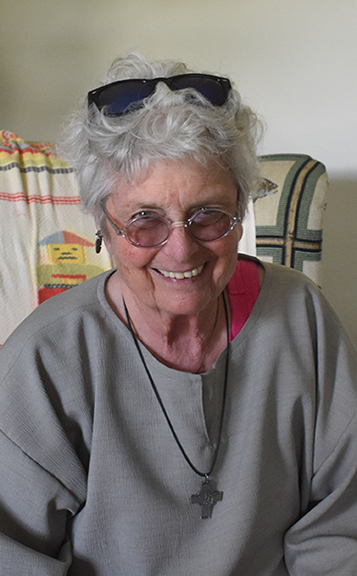By Mary Margaret Edney
VICKSBURG – In 1860, a small group of Sisters of Mercy opened the doors of a modest school in Vicksburg with a simple but powerful mission to educate the whole child – mind, body and spirit. Today, 165 years later, that same mission is propelling Vicksburg Catholic School (VCS) into a new era as it breaks ground on a transformative multi-purpose performing arts and athletic complex.
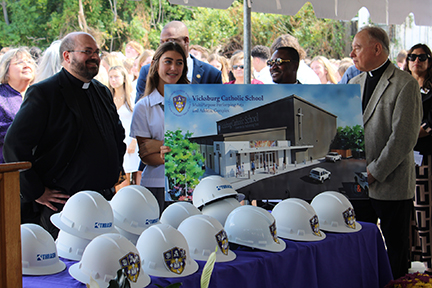
At a groundbreaking ceremony held Sept. 26, students, faculty, alumni, parents and community leaders gathered to celebrate the start of construction on the new building.
“Today’s groundbreaking represents more than just the start of construction. It’s the next chapter in a 165-year legacy of preparing students to make a difference in the world,” said Kristi Smith, VCS development director. “This new facility will ensure that future generations have a place to discover their talents, push their limits and reach their full potential.”
Designed for use by students in pre-K through twelfth grade, the 20,000-square-foot facility will feature a performance stage for fine arts, dedicated athletic space and an area for schoolwide Masses. The addition will also allow the school to repurpose existing classrooms, creating a dedicated middle school.
“By creating a modern space where creativity, teamwork and scholarship intersect, we’re equipping our students with the skills and confidence to thrive long after graduation,” Smith said.
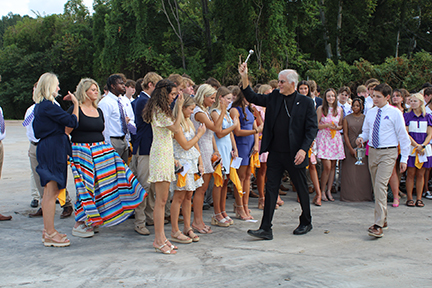
The construction site is at the corner of Hayes and Clay Street, next to St. Francis Xavier Elementary School. Formerly the home of Sullivan’s Grocery, the property was acquired by VCS earlier this year. Since then, Smith has been leading a capital campaign team to develop a vision for the land and raise the funds to make it possible.
“When we first began this effort, we knew it had potential to make a big difference, not just for our school, but for the Vicksburg community,” explained David Hosemann, a member of the project steering committee. “Seeing that vision come to life is incredibly rewarding, and it’s a testament to what Vicksburg Catholic School means to this community.”
That vision is now moving forward, thanks to the support of donors who invested in the school’s future. To date, approximately $8 million of the project’s total $10 million cost has been raised.
With construction set to begin this month, the campaign has entered its final phase to secure the remaining $2 million.
“We are incredibly proud and grateful for what we have accomplished so far, and we are confident in what’s still to come,” Smith said. “People love this school – they believe in its mission and its impact – and that loyalty is what’s turning this dream into a reality.”
(For more information about Vicksburg Catholic School, which serves students from pre-K through twelfth grade in the Vicksburg area, visit www.vicksburgcatholic.org.)
